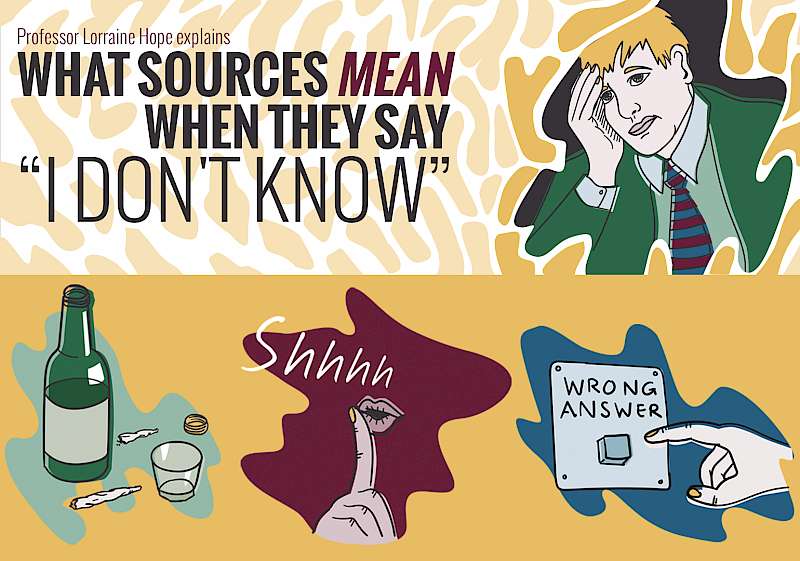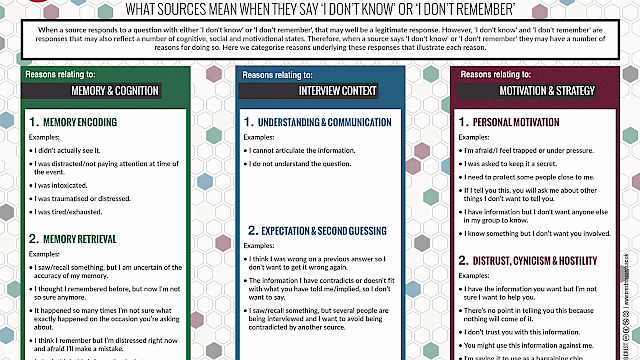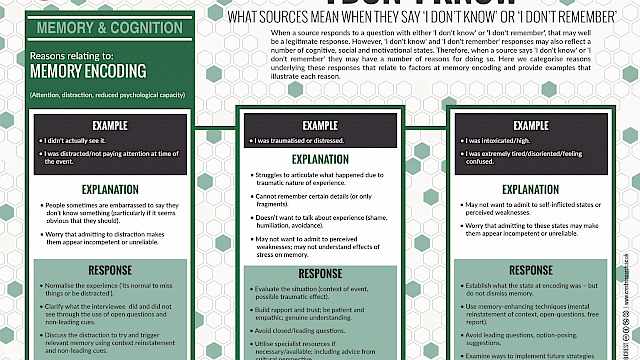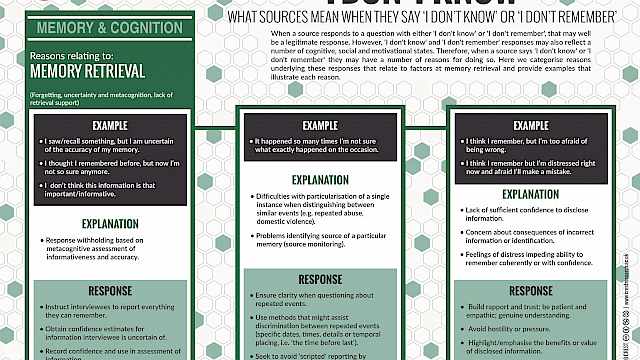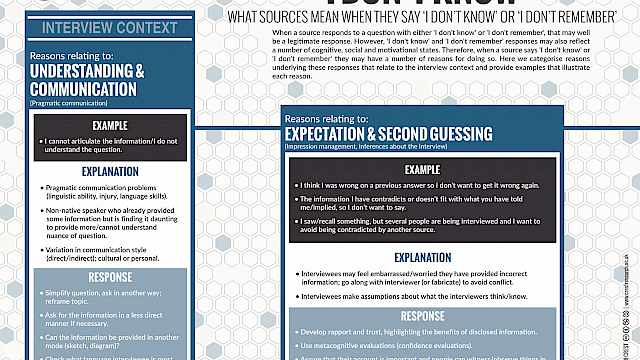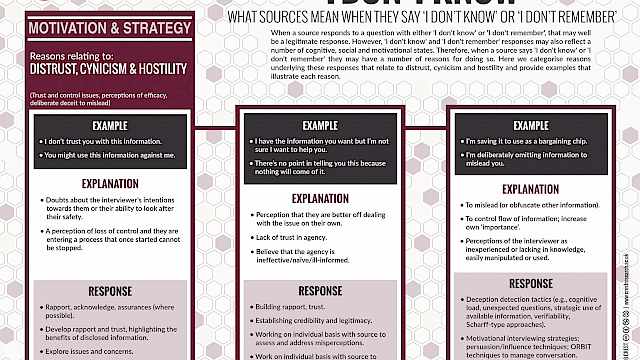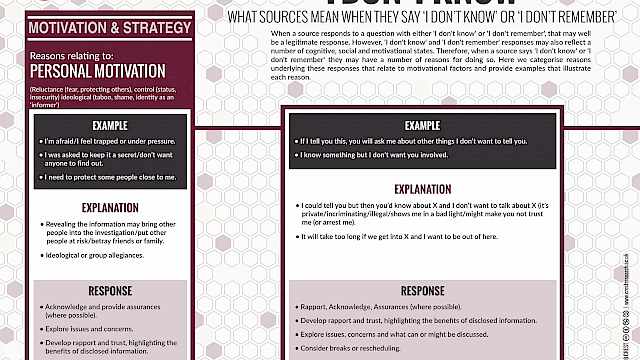During an interview a source may respond to a question with either 'I don't know' or 'I don't remember'. This may well be a legitimate response; however, these responses may also reflect several cognitive, social and motivational states. Therefore, there are many reasons for why a source might respond with an 'I don't know or 'I don't remember'.
There are many reasons why a source might respond with an 'I don't know or 'I don't remember'
Drawing on a range of published research, Professor Lorraine Hope has developed a taxonomy of the potential reasons for the 'I don't know' response, to explore, understand and inform in interview settings.
Through these informative posters, Professor Hope provides examples that illustrate each reason along with possible responses.
The first poster gives an overview of the many reasons why a source would say 'I don't know' or 'I don't remember'. The other five posters look in more detail at each of the cognitive, social and motivational states:
- Overview - an overview of the many reasons why a source would say 'I don't know' or 'I don't remember'
- Memory Encoding - reasons that relate to factors at memory encoding, such as attention, distraction, reduced psychological capacity.
- Memory Retrieval - reasons relating to memory retrieval, such as forgetting, uncertainty and metacognition, lack of retrieval support.
- Interview Context - reasons relating to interview context, such as pragmatic communication, impression management and inferences about the interview.
- Distrust, Cynicism and Hostility - reasons that relate to distrust, cynicism and hostility such as trust and control issues, perceptions of efficacy and deliberate deceit to mislead.
- Personal Motivation - reasons that relates to motivational factors such as reluctance (fear, protecting others), status insecurity and ideological motivations e.g., taboo, shame, identity as an 'informer'.
You can also find a illustrated mindmap poster, first featured in CREST Security Review (CSR) issue 7.
